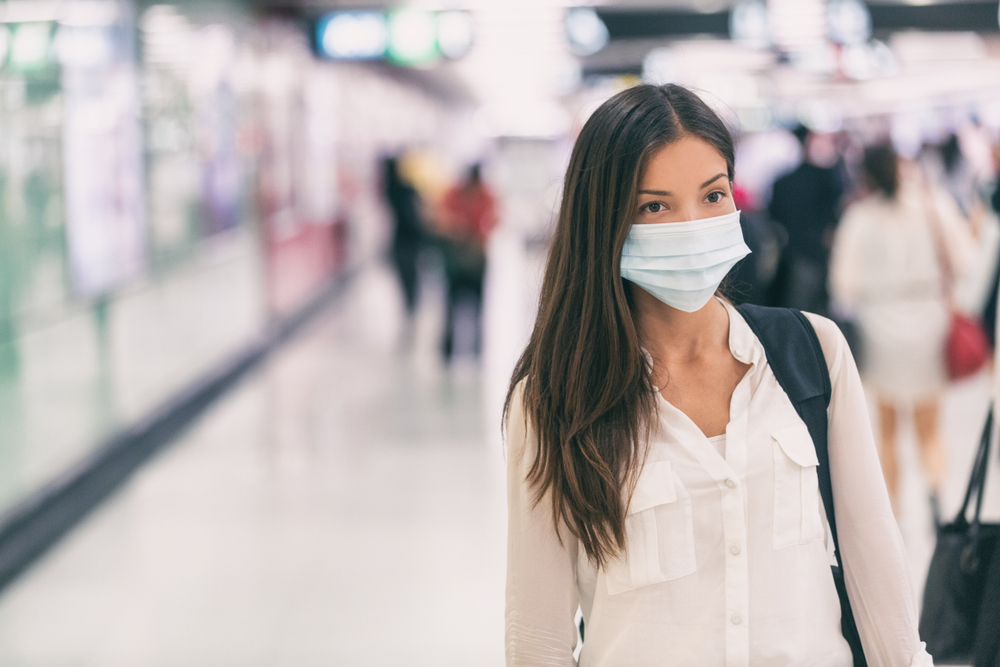Published February 4, 2022 in medicalnewstoday.com
By Katharine Lang
Almost everyone has heard of the placebo effect — when people experience beneficial effects from an inert drug. But few are aware of its flip side, the “nocebo effect.” Here, individuals taking a drug, whether placebo or not, experience unwanted, negative effects. Medical News Today spoke to experts in the field to investigate the basis of the nocebo effect and find out what might be done to minimize its impact on treatments and trials.
All drug trials must have a control group. People in this group receive an inert substance, also known as a placebo — a “fake” drug that does not contain an active ingredient.
If the trial is testing a specific pill, the control group will receive a pill that looks identical but does not contain an active ingredient. If testing a vaccine, the control group will receive a placebo injection.
However, there is a curious phenomenon whereby people taking placebos sometimes notice changes consistent with what they expect to happen.
Therefore, many will notice an improvement in symptoms — the so-called placebo effect. Others, however, will notice side effects that might be expected from the drug being trialed, and they may be unpleasant.
This is known as the nocebo effect. The phenomenon of experiencing adverse symptoms that are expected but without an actual cause was identified in 1961 by Walter P. KennedyTrusted Source.
The term derives from the Latin word “nocere,” meaning “to harm,” and was first used to describe adverse effects caused by a placebo.
Lee Chambers, psychologist and founder of Essentialise Workplace Wellbeing, explained for Medical News Today:
“People get the idea of the sugar pill that cured people — the placebo effect — […] because it’s a little bit of magic, really […] People need to see that it can also be magic that you don’t want.”
One study defined the nocebo effect as “unpleasant or adverse outcomes triggered by the treatment context, beyond any inherent pharmacological effects of the treatment itself.”
So the mere act of taking a tablet or having an injection might cause side effects, which are not due to any drug it contains. And it can happen to those on prescribed medication, not just in trials.
Cause of the nocebo effect
If the medication itself is not responsible for the side effects, why do they happen? The need for medical professionals to gain informed consentTrusted Source might go some way to explaining the nocebo effect.
People undergoing medical treatment must give informed consent for that treatment. To gain informed consent from a patient or trial participant, physicians have to explain the risks and benefits of the treatment in detail, including possible side effects.
Older researchTrusted Source has suggested that when participants in a trial are told about side effects, they are likely to experience them whether they are taking the active drug or not.
So, can negative expectations produce negative outcomes? According to Chambers, this could be the case: “While it’s such a complex mix of things […] on the basic level, it’s having negative side effects because you have been told there might be negative side effects.”
Dr. Fabrizio Benedetti, professor of neuroscience at the University of Turin Medical School, Italy, who has published widely on the nocebo effect, agreed, noting that “[m]any adverse events may be attributable to nocebo effects and not so much to the drug itself.”
A recent studyTrusted Source of COVID-19 vaccination trials illustrates this. Researchers who analyzed data from 12 trials found that 35% of people given placebo injections experienced systemic effects — effects experienced in areas of the body other than the treatment site, such as headache and fatigue — following the first dose.
This was compared with 46% of those given the real vaccine. Therefore, the authors of this study suggest that some 76% of adverse effects reported by those given the real vaccine were nocebo effects. In other words, they were not caused by the vaccine but by participants’ expectations.
Dr. Benedetti was unsurprised by these findings: “It has long been known that nocebo effects occur in many conditions, such as pain and Parkinson’s disease. Therefore, it is not surprising that they also take place in COVID-19 vaccination. If you expect a negative outcome, you can get it.”
Physical or mental causes?
These symptoms experienced are undoubtedly real, so if they are not due to active treatment, what might be the cause? Experts have attributed the nocebo effect to both psychological and neurobiological causesTrusted Source.
Dr. David A. Merrill, adult and geriatric psychiatrist and director of the Pacific Neuroscience Institute’s Pacific Brain Health Center at Providence Saint John’s Health Center in Santa Monica, CA, explained:
“A lot of factors come into play. For example, our prior experiences with the health system and related treatments. If you’ve personally had complex health stressors with a difficult treatment course, you might be anticipating more difficulty with additional treatments. We’re evolved to anticipate outcomes and avoid harm.”
The psychology may be that negative expectations are fulfilled. If a patient hears that a treatment may cause drowsiness, and then feels drowsy, they will blame that sleepiness on the treatment.
In addition, people who have negative expectations of side effects may be more aware of symptoms and, therefore, more likely to report them.
And studiesTrusted Source have found that those who experience anxiety and depression may also be more likely to experience the nocebo effect.
Conditioning and past experience
Another explanation may lie in conditioning. The color of tablets is a case in point. A 1996 studyTrusted Source found that people associate red, yellow, or orange tablets with stimulant effects and blue or green tablets with sedative effects.
The researchers gave otherwise identical blue tablets to one group and pink to the other. The group taking the blue tablets reported more drowsiness.
And those who have experienced adverse drug effects in the past are more likely to report them after a new treatment.
“I’d definitely say past experiences play a part… You get a list of side effects. People will often look and think, ‘in the past, I’ve been susceptible to this one.’ If people had more awareness, they’d look at that list in a different way.”
– Lee Chambers
One part of the nocebo effect that is a result of neurobiology is nocebo hyperalgesiaTrusted Source, where the expectation of pain increases the pain experienced.
When a person anticipates pain, they release cholecystokininTrusted Source, which allows pain transmission. If that anticipation and anxiety can be reduced, the pain will also be reduced.
Dr. Merrill explained how this happens: “Sensations can be amplified by our brain in feedback loops triggered by fear, which results in amplification of pain and other symptoms. This does not mean the pain is not real, but rather that the pain is primarily signaling fear rather than damage.”
Effect on treatment
The real risk with the nocebo effect is when it affects treatments or drug trials. If a person attributes negative side effects to an effective treatment, they might stop that treatment, losing the benefits along with the side effects. Over-reporting of side effects in a drug trial may mean that the drug does not get licensed.
This can have a real impact on health outcomes, as Lee Chambers outlined: “You don’t want someone to discontinue something that’s beneficial because of these negative effects that they feel they are having because of it. It [the nocebo effect] can increase those reported side effects… and lead to negative health outcomes.”
Some studiesTrusted Source have suggested that reducing information about side effects might reduce the nocebo effect, but there are ethical problems. When asked whether he thought withholding such information could be justified, Dr. Benedetti was clear:
“In general, my answer is NO, it is not justified, but many clinician scientists and bioethicists propose an ‘authorized omission,’ whereby patients sign an informed consent in which it is stated that ‘some pieces of information will be omitted, otherwise the therapeutic outcome could be altered….’. There is a lively debate on this point!”
Knowledge is power
Some physicians and other experts believe that ensuring patients know that the nocebo effect is real may affect whether they experience it.
“Having some awareness of the nocebo effect would give you some level of protection over your own self-awareness about the potential side effects you may face.”
– Lee Chambers
One antidepressant study supports this view. In this research, patients who were told about the nocebo effect asked for less information about side effects and more information about how the antidepressant worked than those who were not told.
Knowing more about the treatment and less about the side effects can reduce the likelihood of nocebo symptoms.
Dr. Merrill confirmed this view, noting that “[i]t’s important to educate yourself that the treatment is safe and that the signals being sent by your body are actually signals of safety, not of imminent harm or danger.”
Minimizing the nocebo effect
As the nocebo effect can adversely affect drug trials and change health outcomes in those taking medication, it is important to recognize it and work out how it might be evaluated and corrected in the study.
Research has found that stimulating a placebo effect might reduce the nocebo effect. Studies also suggest inducing a positive mood could yield similar effects.
Surprisingly, making drugs look more expensive has been shown to increase the nocebo effect. In one study, participants reported more side effects from a skin cream in expensive packaging than an identical one in a plain pot. So perhaps cheap packaging might be effective in preventing the nocebo effect.
Trust in those advocating treatment is also key. If someone you trust, such as your own doctor, tells you a vaccine is safe and effective, you are more likely to believe them than if a politician tells you to take the vaccine.
Likewise, if a trusted clinician advises you about treatment effects, this may reduce the nocebo effect. “The more you trust an individual, the more you will trust what they say,” Chambers confirmed.
And, he continued, the language used by clinicians is important: “It does present the opportunity for healthcare professionals and clinicians to really look at the language that they use, and the more we focus on this, the more it will show [the importance of] how you articulate a message.”
“The nocebo effect is due to both biological and mental events.”
– Dr. Fabrizio Benedetti
So we should not ignore the impact the nocebo effect can have, and clinicians must be aware of it when advising study participants. While the nocebo effect is real, we can minimize its impact.
Dr. Merrill advised: “If you’re having trouble with side effects out of proportion to what is expected, you might consider seeking help for anxiety. Not because the sensations are not real, but rather because the feelings are all too real.”




